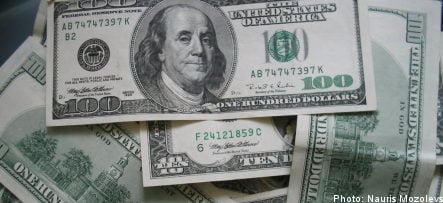The figure places Sweden in fifth position on the world list of countries with a growing community of dollar millionaires.
At the top of the list is Hong Kong, followed by Vietnam and Poland. In Sweden the growth is explained to be due to positive market developments, the increase in the country’s GNP, and an increase in public saving.
The number of dollar millionaires is at a record high worldwide, according to the report, which listed 10.9 million people globally boasting wealth worth more than one million US dollars.
The last record was from 2007 when the figure was 10.1 million.
According to the report, the US, Japan and Germany are still home to the highest number of wealthy people.
Although women and younger people are making great strides among the rich, 73 percent of the world’s dollar millionaires (83 percent in Europe) are still men.
The majority is between 46 and 65 years of age.
To be called a dollar millionaire a person has to own the equivalent of a million dollar in investable funds, excluding the value of property and collectibles.



 Please whitelist us to continue reading.
Please whitelist us to continue reading.
Member comments